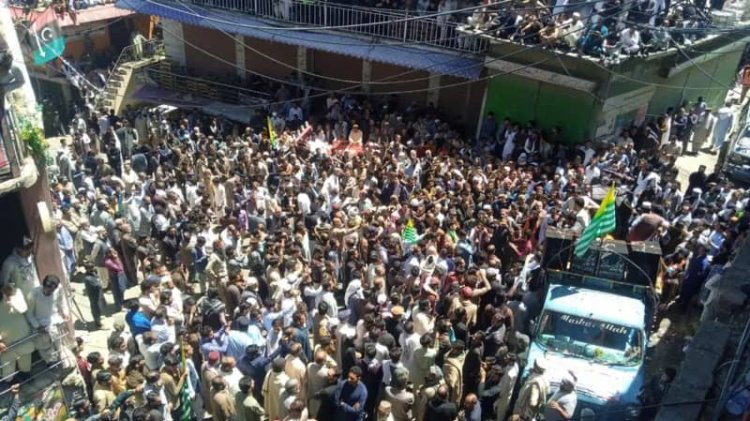Protests about the price of grain and energy resulted in four deaths
Following violent skirmishes with officials in Pakistan-administered Kashmir, four people have killed and one hundred more have been injured.

Since Friday, thousands of people have taken to the streets to express their disapproval at the growing costs of energy and flour.
Tuesday, the day after Pakistani Prime Minister Shehbaz Sharif announced subsidies of 24 billion rupees ($86 million; £69 million), the protest organizers called off the demonstrations.
One of the campaigners spearheading the protests, Shaukat Nawaz Mir, declared, "The government has accepted all of our demands."
Mr. Mir had further insisted that the government provide monetary reparations to the families of the victims of the violence. Following an increase in violence over the weekend, officials decided to suspend cell communications.
There have also been suspensions from businesses, schools, and public transit. Authorities entered Muzaffarabad, the regional capital, on Monday with rangers, a type of paramilitary force.
Video from the demonstrations shows protesters striking one another with rods. According to reports, the protestors were targeted by the paramilitary personnel with tear gas and gunshots.
Authorities reported that one of the four deceased was a police officer. According to the AFP news agency, which cited a physician at the Combined Military Hospitals in Pakistan, at least two of the victims had passed away from gunshot wounds.
The demonstrators were not the target of the rangers' gunfire. A 37-year-old merchant named Muhammad Qasim told AFP, "We were just asking for our rights and got bullet shots in return."
Tuesday was proclaimed a "Black Day" in remembrance of those who passed away by the activist group that started the protests, the Joint Awami Action Committee.
Kashmir, which is governed by Pakistan, is a semi-autonomous territory with a separate regional administration. For over 70 years, Kashmir has been a source of contention between India and Pakistan.
Both Delhi and Islamabad have waged two wars and a small skirmish over Kashmir, and they both fully claim the Himalayan province. These days, none of the neighbors owns more than a portion of it.

 Boakyewaa Lawrencia
Boakyewaa Lawrencia 



































